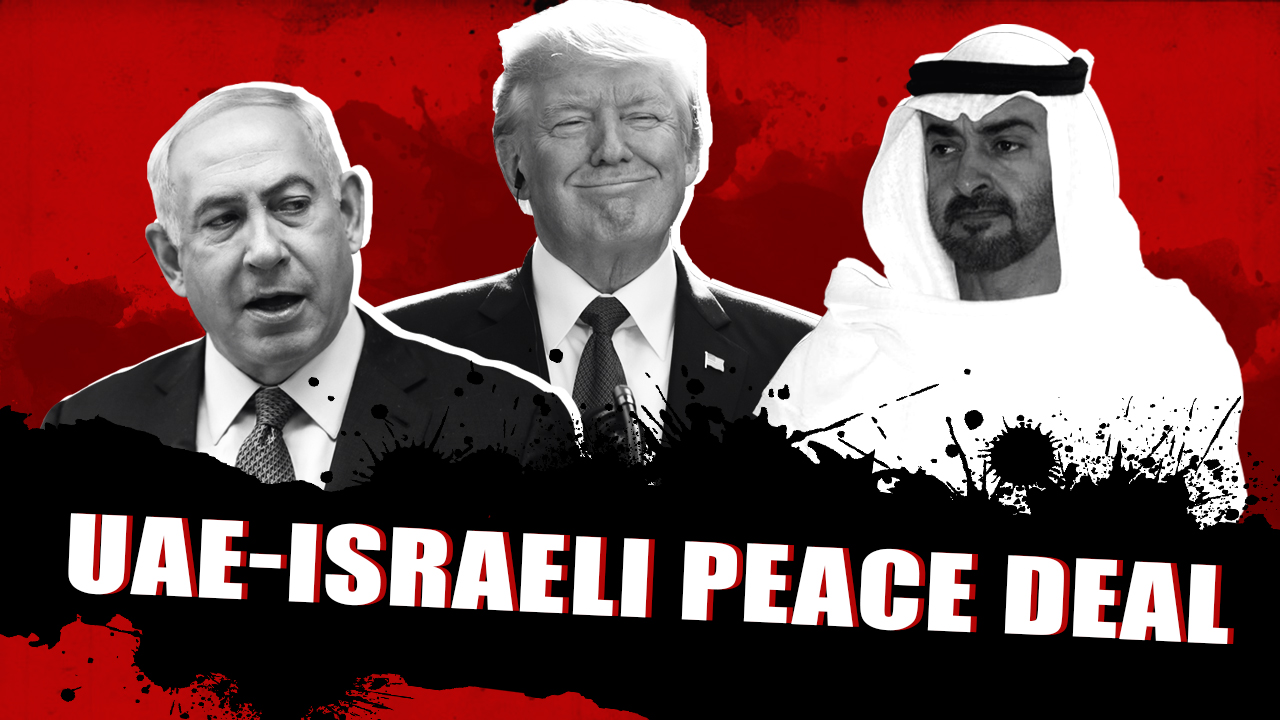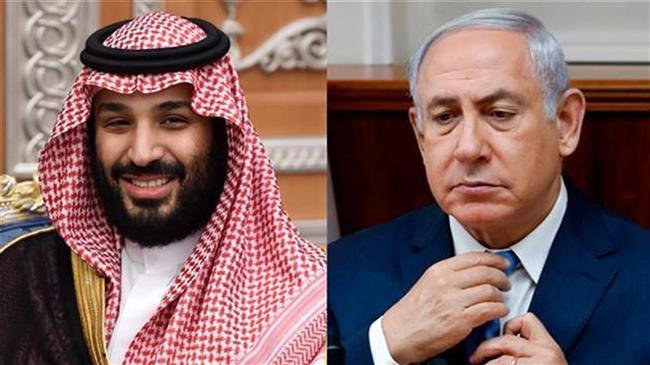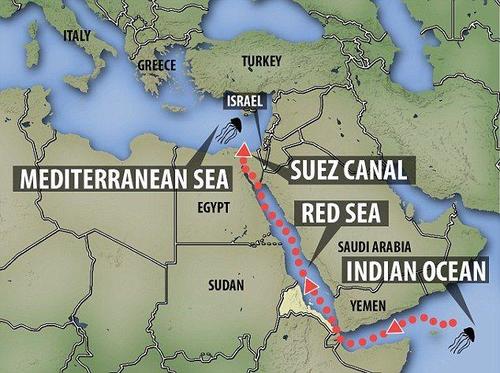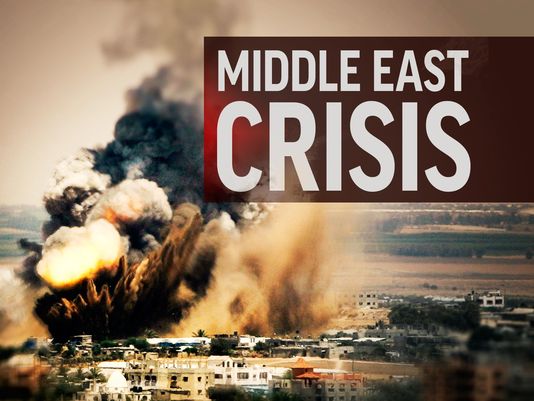DEAR FRIENDS. IF YOU LIKE THIS TYPE OF CONTENT, SUPPORT SOUTHFRONT WORK:
PayPal: southfront@internet.ru
Donation alerts: https://donationalerts.com/r/southfront
Gumroad: https://gumroad.com/southfront
Or via: http://southfront.org/donate/ or via: https://www.patreon.com/southfront,
BTC: 3Gbs4rjcVUtQd8p3CiFUCxPLZwRqurezRZ,
BCH ABC: qpf2cphc5dkuclkqur7lhj2yuqq9pk3hmukle77vhq,
ETH: 0x9f4cda013e354b8fc285bf4b9a60460cee7f7ea9
The year 2020 was marked with an unprecedented shift in the Israeli-Arab relations. The Abraham Accords between Israel, the UAE and Bahrain are a milestone in the geopolitical transformations in the Middle East, where the Palestinian issue was overtaken as a central issue for Arab and Islamic countries; it allowed Israel to enter publicly the Gulf states, Arab and Islamic countries.
Saudi Arabia and Kuwait refrained from normalization despite US pressure, Kuwait has rejected normalization due to the public opinion and the influence of Palestinian community in Kuwait (approximately 450,000), in addition to its keenness to maintain balanced relations with its neighbor, Iran.
Oman in its turn has sensitive relations with Iran and the UAE, considering the public opinion of its Shiite citizens (45% of the population). Under the Biden administration, the monarchy expects to regain its role in the Gulf region, mediating between the United States and Iran, there are also diplomatic lines of contact with Israel.
The Israeli-Gulf relationship has existed since the Oslo Accords between the Palestinians and Israel. They may have existed much earlier, but in secret and within security tracks. In view of the Egyptian and Jordanian precedents, we find that the Arab peoples reject normalization unless the Palestinian issue is resolved on a just basis that meets the aspirations of the Palestinian people. Therefore, such normalization is liable to collapse if the authoritarian regimes change. At root, Israeli normalization with the Gulf states is concerned with regimes most of which suffer lack of democratic legitimacy and are threatened by Iran and new wave of Arab Spring revolutions.
Israel considered the Abraham Accords to be a running of the Arab political and economic blockade imposed on it since its foundation, as formerly, the confrontation lines were within its borders with neighboring countries, and are now moving further, providing a wider vital space and a greater room for maneuver. Israel enjoys opportunity to solve its security issues outside its borders.
From the Gulf point of view, normalization came as a result of political realism and the primacy of states interests over nationalism and ideology, the Israeli-Palestinian incompatibility and the exploitation of the Palestinian issue by individuals, organizations and states. In addition, there was an altering of the Hashemite custodianship over the holy sites in Jerusalem and its granting to Saudi Arabia in exchange for the Saudi political track’s compatibility with the Israeli trends. (LINK) It is also presented that Riyadh was wealthier and had better opportunities to keep these holly sites in good order and condition.
The marginalization of the Jordanian role in support of the Palestinians and the two-state solution eliminates the Jordan option as alternative homeland and makes possible the transformation of the Israeli-Palestinian conflict into a Jordanian- Palestinian one, returning to the framework of civil war in 1970. Taking into consideration Netanyahu’s announcement that he did not abandon the plan to annex the West Bank, but postponed it, denying the Emirati claim that normalization would take place in exchange for the annexation dismissal, this prompted Jordan to affirm its guardianship over the Islamic holy sites in various ways. (LINK)

Israeli police stand next to the Dome of the Rock mosque at the Al-Aqsa Mosque compound in Jerusalem’s Old City, July 27, 2017. Mahmoud Illean | AP
Although the Emirati, Bahraini, Sudanese, and Moroccan normalization with Israel and the warm relations with Oman is a torpedo for the Arab Peace-for-Land Initiative, which was primarily endorsed by Saudi Arabia in 2002. The Arab states of the Persian Gulf did not criticize or object to it. The Saudi Crown Prince met with Netanyahu and the head of the Mossad in the city of Neom just days before the assassination of the Iranian nuclear scientist Mohsen Fathi Zadeh in Tehran on 11/27/2020. This reflects the Saudi eagerness to link its interests with those of Israel in order to confront the Iranian threat. The need of the Saudi Crown Prince for Israeli support aims to improve his distorted image in the next US administration, which might have reservations on his coronation after the death of his father who withstands the normalization with Israel and adheres to the Arab peace initiative.
Saudi Arabia didn’t modify its relationships with Israel officially due to its unique place amid Sunni Muslims leadership and presence of internal militant Islamic trend, as well as fears of stiff competition from its rival Turkey, lest use it to stir the Islamic public opinion against them in view of a opposite Turkish-Pakistani alliance that opposes normalization without a just solution to the Palestinian issue.
In fact, Israel has succeeded, through its international relations, the elements of its security and scientific power, and the use of American pressure, to convert the peace equation with the Gulf states from land for peace to peace for peace, and establish alliance with the Gulf states to confront Iran which took advantage of the Arab Spring and the American failure to maintain the stability in Iraq. Iran strengthened its presence in Iraq, Syria and Lebanon, causing instability in Bahrain, Saudi Arabia and Yemen. This posed a threat to Israel and the Gulf states, beside the desire of the UAE in particular and the Gulf states in general to have the Israeli technology and use its military capabilities to deter Iran and increase the influence on the White House decisions to their favor, as normalization corresponds to the vision of Democrats and Republicans in the American administration. (LINK) They also need to be prepared for the worst in the new US administration’s policies in the Middle East, including the war in Yemen, human rights violations, and the dispute with Qatar despite the partial reconciliation due to US efforts. “Biden has already forewarned Mohammed bin Salman of a 180-degree shift in the White House’s attitude toward him and the Saudi kingdom”. (LINK)
Israel will never fight Iran to defend the Gulf states or on behalf of them, but it will use the Gulf states, their lands and their capabilities to defend Israel and deploy their forces against Iranian threat.
The deployment of the Israeli air defense systems and the use of air bases and electronic reconnaissance systems to monitor, intercept calls and jam communications secure early countering to missile attacks as the first stage of engagement. The second stage of engagement will take place in the Jordanian and Syrian airspace. The use of the Gulf air bases will provide Israeli air force with the ability to strike deep Iranian targets without refueling and get rid of the logistical burden.

Israeli Prime Minister Benjamin Netanyahu smiles as he addresses supporters on election night at his Likud Party headquarters in the Israeli coastal city of Tel Aviv early on April 10, 2019. – The results from yesterday’s vote came despite corruption allegations against the 69-year-old premier and put him on track to become Israel’s longest-serving prime minister later this year. (Photo by THOMAS COEX / AFP)
If Iraq joins the normalization after Al-Khathemi eliminates the security chaos and takes control over the Iranian militias, Syria and Lebanon will be isolated from Iran and its military capabilities; threat that is posed by Hezbollah on northern Israel will be reduced.
Israel’s access to the water of the Gulf, the Arabian Sea and the Red Sea provides it with political and economic influence through the partnership with the United Arab Emirates. Through the geopolitical location, capabilities and wealth, Israel will have control over the important maritime trade and transporting gas and oil routes extending to Europe. LINK
Israeli products will invade the Gulf markets, which were previously founded under false names and origins, by re-exporting through Jordan and Egypt. Gulf wealth will invest in Israeli industries and projects, especially in the technology and weapons.
Gulf countries’ normalization with Israel harms Egypt and Jordan. It will limit investments and aid, reduce their political and security role. They tried to restore their position by proposing the new Levant initiative with Iraq, which failed. Iraq under the leadership of Al-Khathemi is aligned with Saudi Arabia, looking for financial aid and political influence. The importance of the Suez Canal will be significantly reduced as a result of the Israeli project to extend railway lines from Israeli ports on the Mediterranean to the Gulf, where goods, oil and people will be transported. LINK
The Gulf states’ normalization with Israel will raise the Iranian pressure and threat. The Gulf states will become the center of gravity of espionage operations, assassinations and terrorism, and the arena for the Iranian – Israeli confrontation.
Turkey will also increase the tense of its relations with Israel over the Mediterranean gas and the Palestinian issue. In cooperation with Qatar, it will support Islamic organizations or the so-called political Islam, which Muslim Brotherhood represents as a direct threat and an obsession for the UAE in particular and the Gulf regimes in common.
The Israeli alignment with some of the Arab countries will lead to new regional alliances and complicated conflicts due to the involvement of regional and international powers, and threats of wars that are wider than the region.
The Middle East is the only region in the world that lacks a regional security order. The normalization of relations between the countries of the region that is inflamed by conflicts and wars would lead to the provision of security that would create positive environment conducive to economic development and providing job opportunities for unemployed youth. This can only be achieved through order based on inclusiveness and equality.
Among the most prominent causes of the chaos sweeping the region is the struggle of the great powers and external actors which are attracted to compete for resources and geopolitical influence within a non-homogeneous and oscillating security order that makes components anxious about their interest of survival and the fear of being swallowed. Saddam Hussein’s invasion of Kuwait is one of the worst nightmares of such regimes. In addition, new global powers, namely China and Russia’s attempts to restore the legacy of the Soviet Union, in light of the declining importance of American influence, will continue to push the region into chaos through polarization and proxy wars to create an environment suitable for pursuing their interests.
The establishment of a regional administrative system with an inclusive structure based on agreed values and principles of respect for the sovereignty of its members as states without domination or marginalization, which helps to achieve interests without politicizing religion and religious politics, would be beneficial and acceptable.
The regional security order must rely on the collective power of states, not on national alliances with foreign countries and an endless arms race.
A confederal unity that recognizes the interests of its members, ensures a better life for its people, and perpetuates the values of justice, equality, wealth sharing, and freedom of religious belief, will be appropriate for reconciling state identity with collective interests. It supposes the establishing a collective order of regional leadership and majority decision making that are binding on all members and formulate common regional policies, starting with economics, health and education, and then regional policies, considering the interests of the members in an equitable and inclusive manner.
Courage, boldness, and timing are essential for redrawing the region’s future. Fear and hesitation will only take the region into a cycle of violence, terror, and destruction.











it’s hardly worth the paper it as written on – the arabs were bought by the exceptional morons in the white house and the bribe has a certain longevity but once past best before date, the arabs will require more and better toys to tag along and then the jews will attempt to push the arabs in front of them in their attack on Iran and the arabs won’t be too pleased and tell the jews to deal with the Iranians themselves and leave the arabs on the side. and by that time the jes will be made into minced meat by the other middle east states. and not a second too early.
As Iran got into close proximity to Israel, Israel wants to get close to Iran via these agreements with the gulf states.
Two more Arab countries have joined the ‘axis of resistance” against Israel: Algeria & Yemen
Stop making so many profiles and comment with the zionism=evil profile.Frank,Just me ,condor and great khan are one and the same.
and kuwait is nowhere to be seen and won’t sign up on the kushner israel/arab accord and neither will saudi as long as king salman is kicking about but once gone, the odious mohammed of fake da vinci fame bin salman will kiss a jewish ass and brag about it.
Frankly, the two pissant puppet Arab Wahhabi regimes of western occupied UAE and Saudi occupied Bahrain are now witnessing the true criminal nature of Zionist criminals and they are even stealing petty items from hotels, let alone what they do to their dying economies.
Israeli Tourists Stealing Every Carriable Objects from UAE Hotels: Report
https://uploads.disquscdn.com/images/fe5270c63159ac48b75f1a476b6c3ff0a27b39b4a71c68a4b2e0c93166ae7557.jpg
Burj el khalifa security manage displays hotel iron recovered from Israelis tourists luggage.
THE COOPERATION HAS ONLY STARTED. I expect us to go big :)